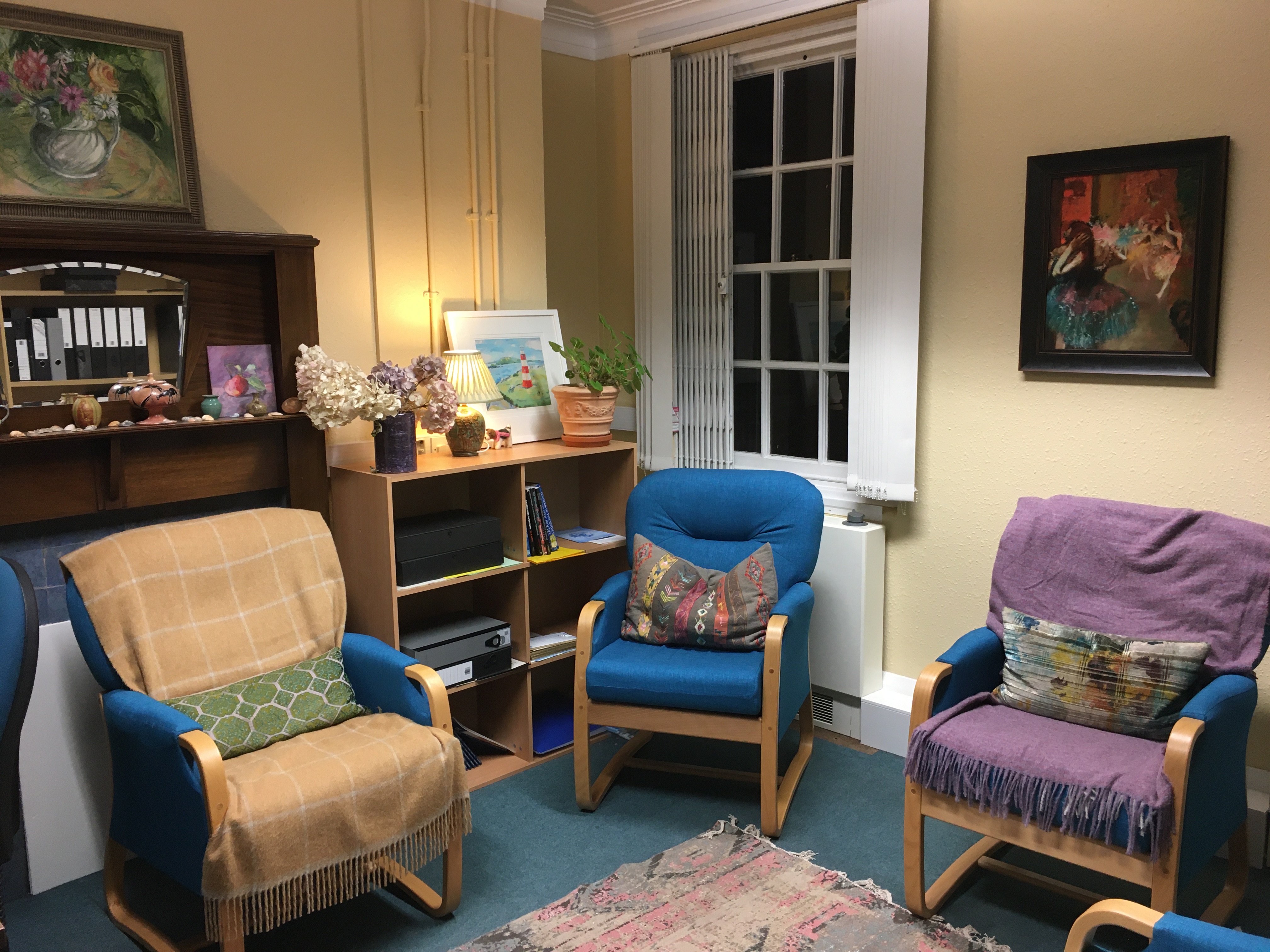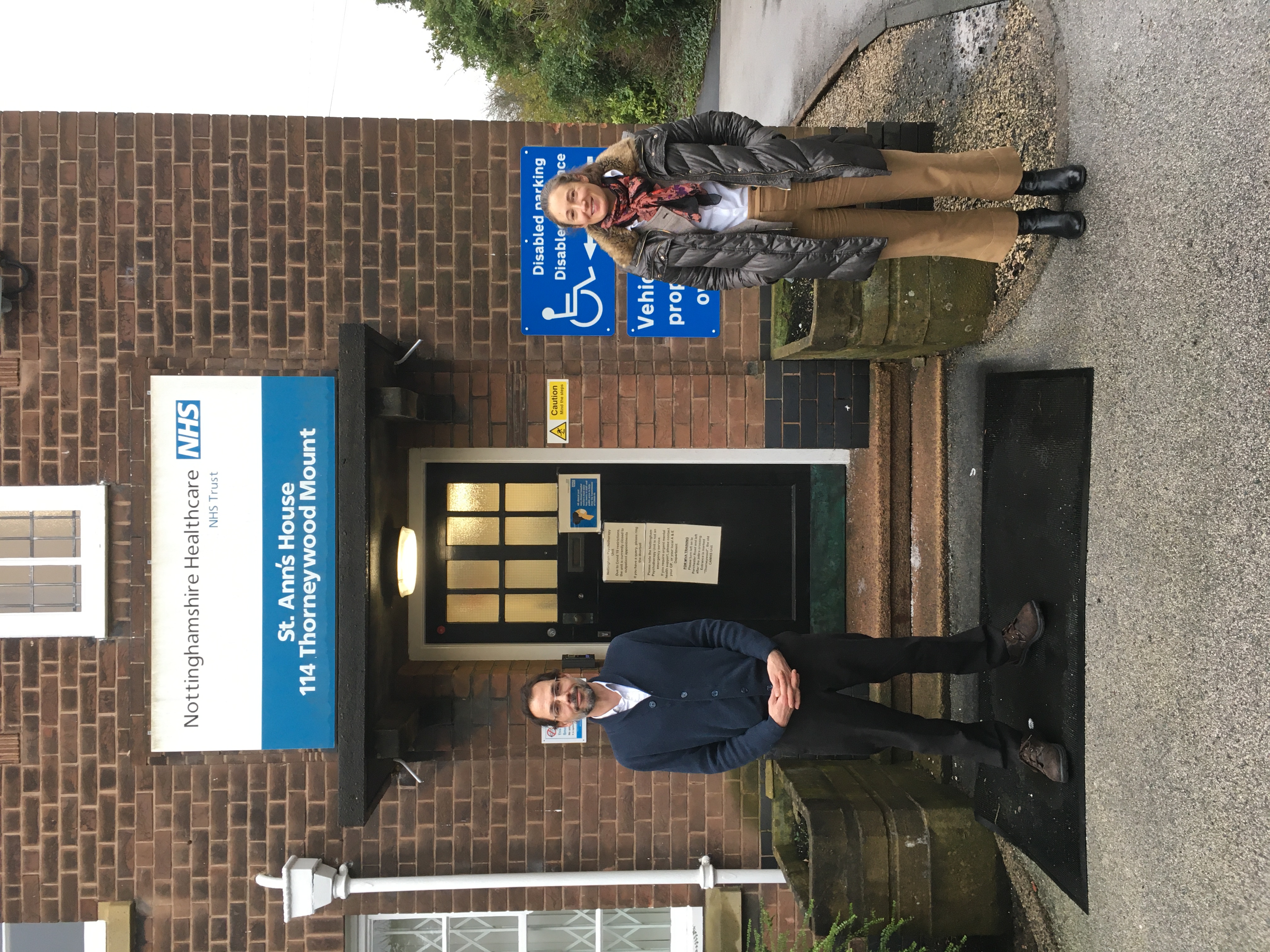Higher training in Medical Psychotherapy
Why this specialty?
As medical psychotherapy (MP) trainees we agree that it has always felt important to be able to remain explicitly aware of the psychological dimension and impact of what we term mental illness, and to be able to develop skills to engage helpfully with people experiencing emotional distress. Like many psychiatrists and doctors, we have always found ourselves interested in people and their stories; drawn to understanding the narratives and how these link to their symptoms.
Yamini, ST8 dual trainee in Leicester specialising in dynamic psychotherapy, comments that ‘to practice psychotherapy – a natural choice for me – is a privilege. To listen to the life story of each patient ; every person has a unique story to tell. There is never a boring day – never a boring session. I love the marriage between art and science in psychodynamic psychotherapy – we use the broad base theory and knowledge, but we also bring imagination to understand the patient’s narratives – to understand the unconscious. Most important of all, is the therapeutic relationship and the importance of transference, and how it is used therapeutically’.
Ian, ST6 dual trainee in Leicester specialising in CBT, has noticed that a thorough grounding in dynamic psychotherapy and in CBT forms a useful training not only for direct patient work in these modalities, but as a skill set which can be utilised in the setting of the general adult work. In addition, it can help in formulating dynamics and difficulties which arise with patient and team relationships.
Murat, ST8 dual trainee in Nottingham specialising in dynamic psychotherapy, worked as a Staff Grade Psychiatrist for over a decade after RCPsych membership then decided to enter higher training. He chose dual training in GA (general adult psychiatry) and MP, a choice borne of a desire to deepen understanding of his clients, especially those with complex trauma and early attachment difficulties. He also wanted to improve his repertoire of methods for helping people to recover and in this has found the combination of MP with GA highly rewarding.
Murat comments that with this training, ‘the range of interesting posts I might occupy in future is increased. I have also found that the psychoanalytic theories which I have become acquainted with have, as hoped, allowed me to look at my work with fresh eyes. Psychoanalytic ideas and insights have proven useful in every area of my work, including making sense of organisational dynamics’.
Where can I work?
The East Midlands School (HEE-EM) is broadly divided into North and South segments, with close links. Leicester Partnership NHS Trust is teamed with Northampton Healthcare NHS Trust and these comprise the South segment. Nottinghamshire Healthcare NHS Trust, Derbyshire Healthcare NHS Trust and Lincolnshire Partnership NHS Foundation Trust make up the North segment.
The East Midlands as a whole is an attractive region in which to pursue higher training. There is an appealing mix of city variety with easy links to rich countryside of outstanding beauty, including the Peak District, Lincolnshire coastline and Wolds, to the rolling countryside of Nottinghamshire and Leicestershire - with all counties blessed with an array of market towns, historic villages and places of interest. Cost of living relative to national average is distinctly lower, yet road, rail and air links with the rest of the UK keep us well connected!
Clinical opportunities
Within the medical psychotherapy side, the support and training offered in HEE-EM have been excellent and remained so even during the trials of a global pandemic! The CBT and dynamic team are an experienced and welcoming group of clinicians who work hard to offer high quality weekly supervision and the necessary variety of training cases.
There has been provision in terms of time and funding for Ian to pursue academic training in CBT, while finding has been available for Yamini and Murat towards personal therapy – a prerequisite for training as a dynamic therapist.
The programmes for CBT and dynamic therapy also comprise sections of training with appropriate dynamic/CBT and systemic cases with close dedicated supervision from the appropriate team, thereby providing a rounded training experience.
Murat has had the opportunity to work with therapists from varying backgrounds including Transactional Analysis and Gestalt Psychotherapy. Alongside individual and group analytic experiences, Murat has also joined the family therapy team at the local CAMHS unit. Yamini has received training in DIT, CCRT, group analysis, MBT, SCM – all with supervisors accredited and registered in each speciality.
The programmes for the general adult side of dual training in North and South segments are flexible and allow for a variety of inpatient and outpatient posts. These include:
- crisis team
- assertive outreach team

- homeless liaison team
- forensic wards
- early intervention in psychosis team
- eating disorders inpatient and community service
- rehab wards
- Huntingdon’s specialist unit (Leicester)
- personality disorder service
- ADHD service
- ASD service
- psycho-oncology service (Leicester)
- Trauma service (Nottingham)
- Specialist depression service (Nottingham)
Murat has enjoyed a year with the early intervention in psychosis team in Nottingham and also time with the Nottingham Eating Disorders service. Ian has found the Leicester ASD and ADHD teams welcoming and supportive for valuable training in work with these neurodevelopmental conditions, and has also benefitted from a GA placement one day per week with the Nottingham Centre for Transgender Health, illustrating the flexibility between Trusts in the region for provision of tailored placements as well as service provision.
Training scheme structure
Broadly, though this will vary according to the setting of the posts, the HEE-EM dual GA/MP training programmes are organised in an integrated way over five years. What this has looked like in practice are schemes of two years of 4/1 GA days/MP days. The other two years are reversed and the final year is flexible, being thought of as an ‘integrative’ year. We have all have found CS and ES support and facilitation to be excellent when it comes to planning out how best to utilise sections of time in the programme to be able to best meet our training needs.
An important component of training in either modality is the academic one. Dynamic trainees will decide on which external training to undertake, the suitability of the training would be discussed with the TPD/clinical supervisor, taking into account their chosen theoretical orientation: Freudian, Jungian etc. Historically some trainees have decided to join the local South Trent Training, which is an integrated approach involving seminars and supervised work and some have chosen other trainings eg in London/elsewhere. This component, like personal therapy, runs through the duration of the training. CBT trainees are funded to attend higher academic training in CBT, and again have free choice as to which course suits them best.
In both North and South segments, we continue to do general ST on-calls throughout which is helpful in keeping in touch with crisis work and acute psychiatry, even during years where we are predominantly based in medical psychotherapy.
Teaching and academic opportunities
The ST role in North and South segments in general affords mutually supportive working relationships with other STs. There is a thriving peer group culture with regular peer meetings and well facilitated Balint groups. This is in addition to central Trust-organised postgraduate teaching, journal review and case discussions sessions.
There is a commitment in all of the HEE-EM Trusts to personal and team development and active medical education for trainees, and by trainees for medical students thanks to excellent dynamic links with the Medical Schools at Nottingham and Leicester.
We have found teaching opportunities to be varied – medical and nursing students, core trainee teaching, and ad hoc teaching for peers and colleagues. We are supported to facilitate Balint groups for peer STs, CTs, and GP trainees and to become involved in case supervision later on. Yamini has benefitted from experience of organising and leading teaching courses within the dynamic psychotherapy department in Leicester.
Research and Quality Improvement
While we have noticed that as a trainee the idea of research can seem a little overwhelming, due to the complexity of the work and procedures needed to vet a project through various ethics committees, it has been our experience that all the areas of HEE-EM have had excellent support from Trust R&D teams who are supportive with individual and wider projects oriented towards audit, research and QI. Of course, this figures as an item that we are mandated to fulfil in terms of training portfolio – but at the same time it makes a real difference to have trainers, colleagues and supervisors who will actively support our efforts to create research, audit and QI projects which are genuinely based on our chosen areas of interest. And, if the idea we have is not so well-formed – there is ample support on hand to help us develop the question, proposal as needed!
For her psychoanalytic research, Yamini has written a paper on infant observation linked to her external psychoanalytic training. Murat has undertaken a research/ service improvement project in which he ran a dynamically informed case and paper supervision group for the local crisis team. At the end of the two year period the research team were able to assess the benefits of such regular Balint derived workshops. Ian is involved in QI/audit to ascertain the nature, quality and uniformity of general trainees’ psychotherapy training.
Leadership and management
Though the COVID pandemic has made it more challenging for trainees of all disciplines to access and achieve suitable experiences and competencies formally, we have found that the Trusts within HEE-EM make identification, promotion and fulfilment of leadership and management opportunities a priority, even in difficult circumstances. It is recognised that leadership and the need for some form of management awareness and skill takes many forms – from dealing with conflict and difficult situations with patients, within teams and within peer bodies, to the wider roles and responsibilities that consultants face – team management, trainee guidance, strategic planning and more.
Ranging from in-house courses to informal arrangements with consultant, ie taking the ward round, there are many opportunities to gain management experience.
There are usually opportunities to supervise CTs in various QI projects.

If you would like to learn more please contact Dr Nicola Phillips - East Midlands Region Training Programme Director for Psychotherapy.